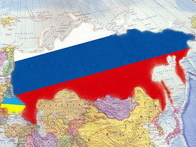Russia to protect its market should Ukraine sign EU Association Agreement

Russia will protect its domestic market from Ukrainian goods, should Ukraine sign an association agreement with the EU. Such a conclusion follows from the results of the meeting of the Council of the Eurasian Economic Cooperation Commission.
Russia will independently protect the domestic market from Ukrainian goods, without coordinating its actions with partners in the Customs Union - Belarus and Kazakhstan, although blocking the flow of Ukrainian products without the support of neighbors is difficult, experts say.
On June 23, the meeting of the Council of the Eurasian Economic Commission (EEC) was held in Sochi. It was said that Russia, Belarus and Kazakhstan could coordinate general measures of economic response to Ukraine's possible move to sign the Association Agreement with the European Union. However, after the meeting, First Deputy Prime Minister Igor Shuvalov said that the decision on the protection of the national market would be taken at the level of the Russian government, rather than the EEC.
According to experts, Russia may apply the 6th addendum to the agreement on free trade zone in the CIS. Under the agreement, members of the free trade area (which now includes Ukraine) may set non-zero rates for custom duties to the countries of the zone, if there was a significant growth in imports of foreign goods through the border of one of the countries. In other words, Russia may raise the rates on products from Belarus or Kazakhstan, if the country proves that the goods are imported at first from the EU to Ukraine and then, from Ukraine, goes to the markets of Belarus and Kazakhstan. Non-zero rates can not be higher than those that the country assumed when joining the WTO.
If Ukraine signs the Association Agreement, Russian departments of the economic bloc, including the Customs Service, will monitor the situation with incoming goods from the Customs Union and does not exclude protective measures, RBC reports.
However, Russia's move to unilaterally set non-zero duties and monitor products from member-countries of the free trade zone casts doubt on the idea of the existence of the Customs Union, Vice President of "Business Russia," Vitaly Survillo believes. "If we talk about the joint zone, and if we refuse from checking commodity flows on the borders inside the Customs Union, then I do not understand how one can do what Mr. Shuvalov said without making agreements with Kazakhstan and Belarus," he said.
Noteworthy, President of Belarus Alexander Lukashenko said before that he did not see any problems of cooperation between Ukraine and the EU, noting that the issue of Ukraine's accession to the EU and cooperation with the Customs Union was too politicized. "Belarus will always be against the introduction of any barriers in trade with Ukraine. This is an important trading partner. And without the consent of Belarus, Russia will not be able to apply the 6th addendum," he said.
The treaty establishing the Eurasian Economic Union was signed on May 29th, in Astana, the capital of Kazakhstan. The document was signed following the meeting of the Supreme Eurasian Economic Council. Russian President Putin had previously announced the establishment of the Union as the "central event of the year." The document was signed by the leaders of three countries participating in the new union - Russia, Belarus and Kazakhstan.
The signed agreement reflected the basic issues inherent to international organizations. The agreement enshrines the principles of sovereign equality, territorial integrity, and respect for political features of the political structure of member-states of the Union.
Subscribe to Pravda.Ru Telegram channel, Facebook, RSS!


